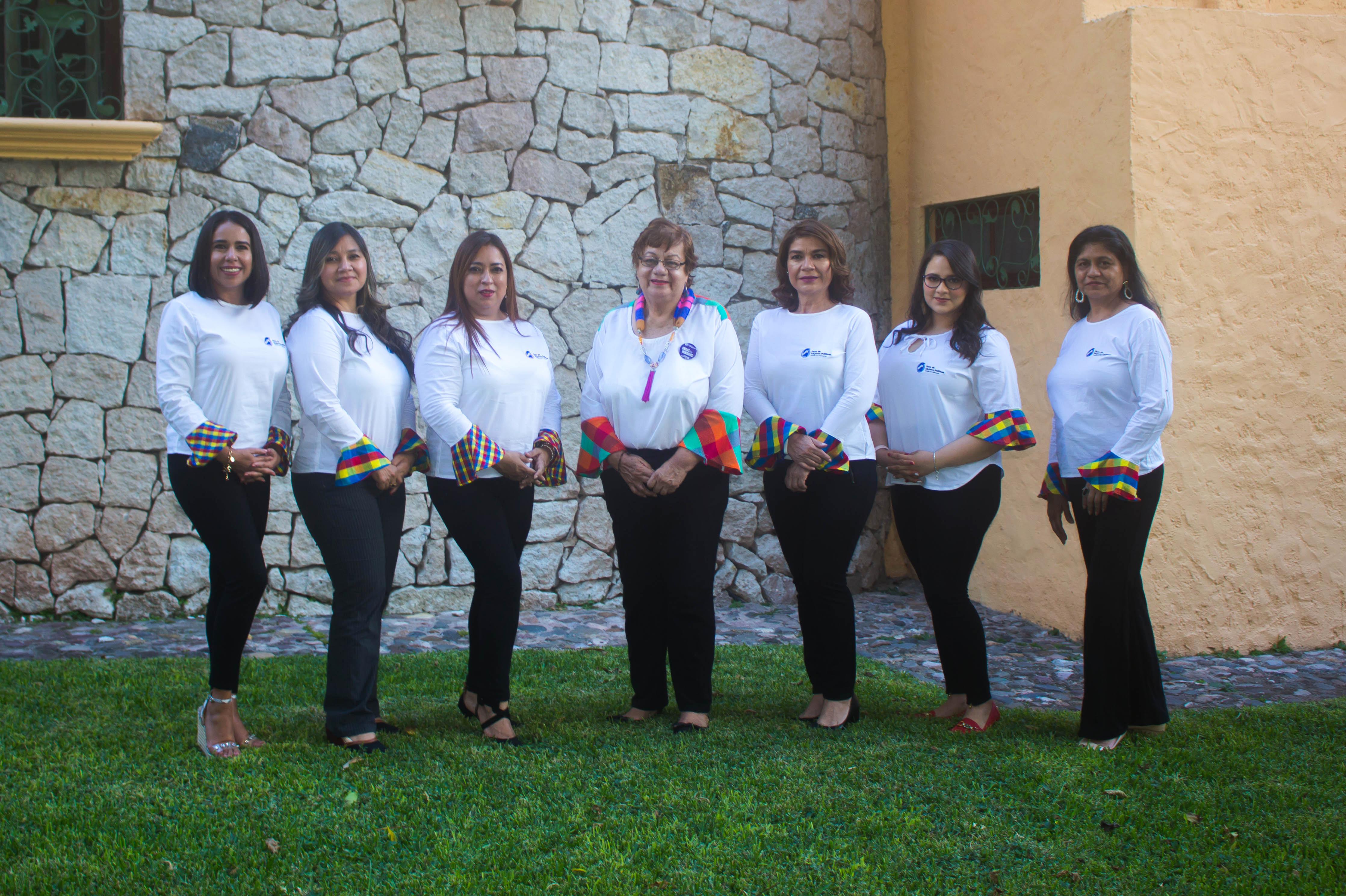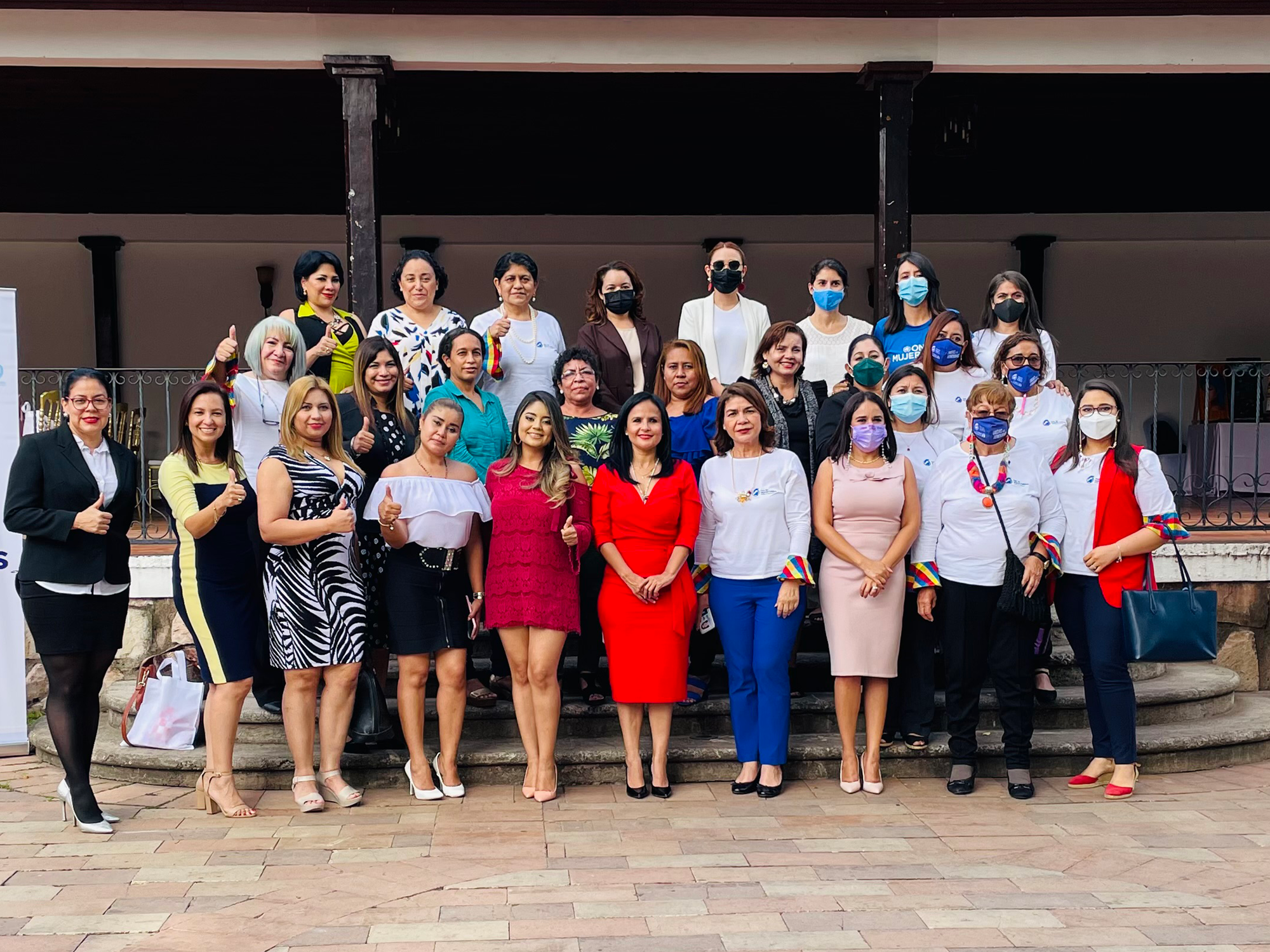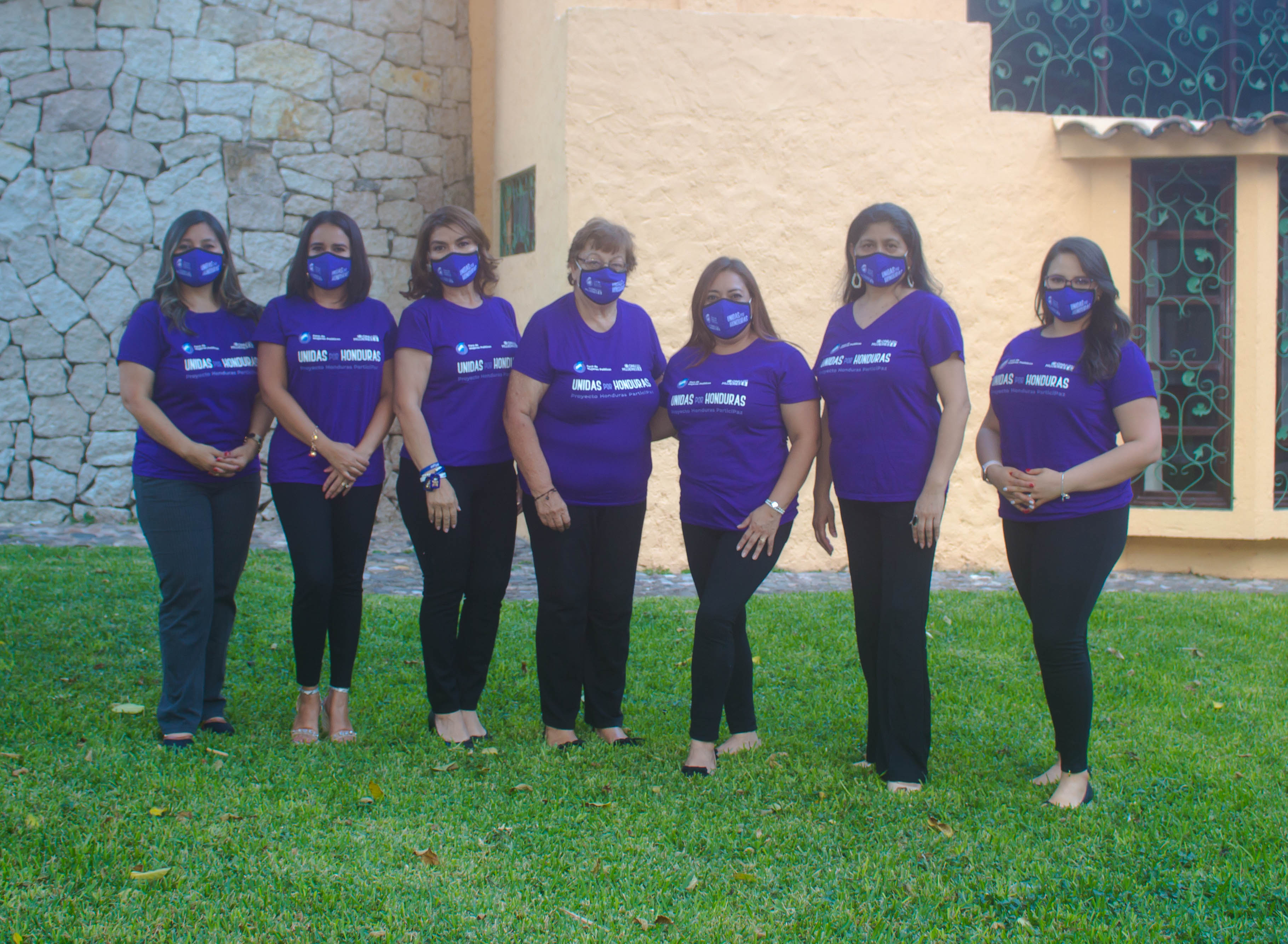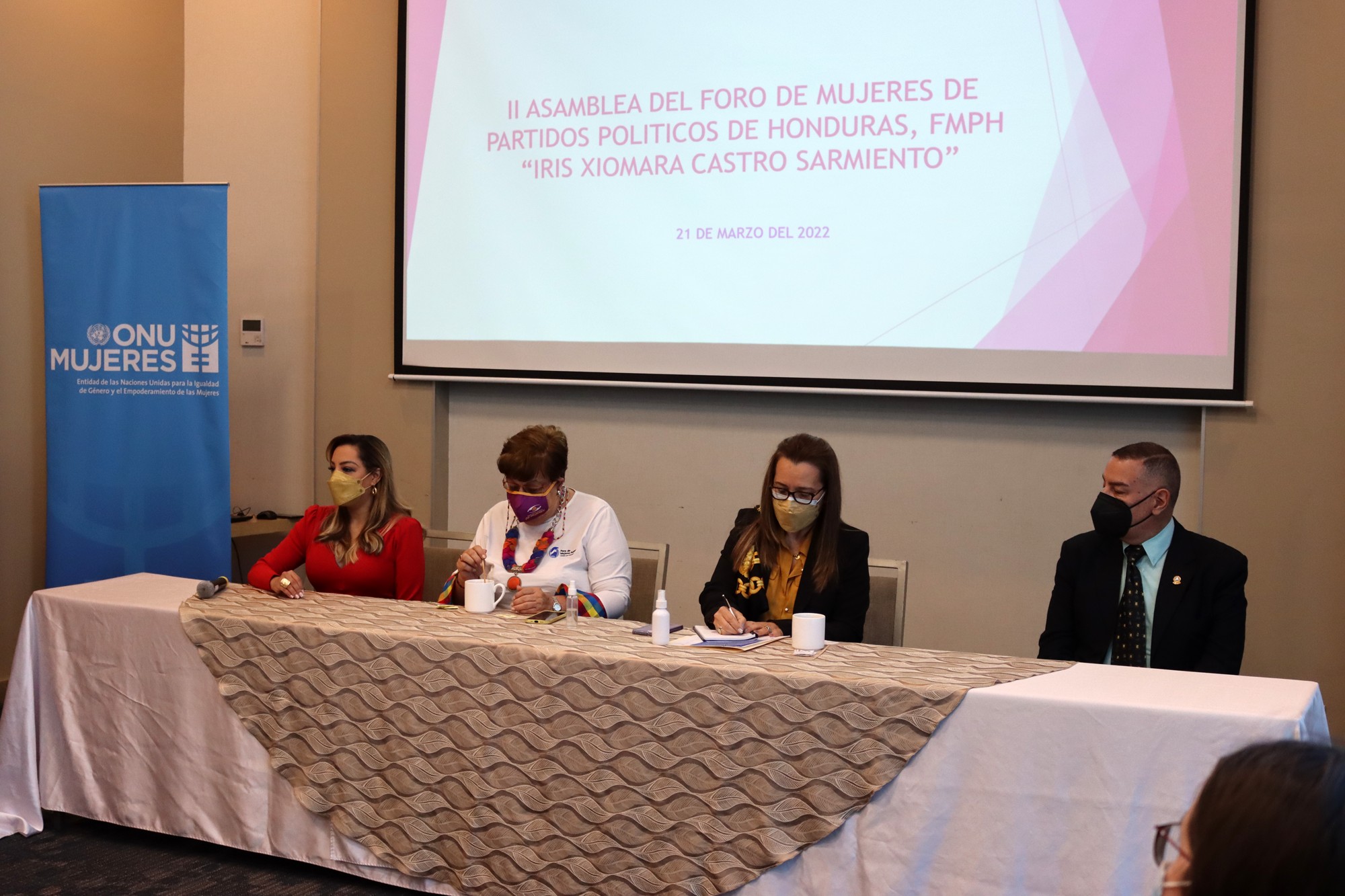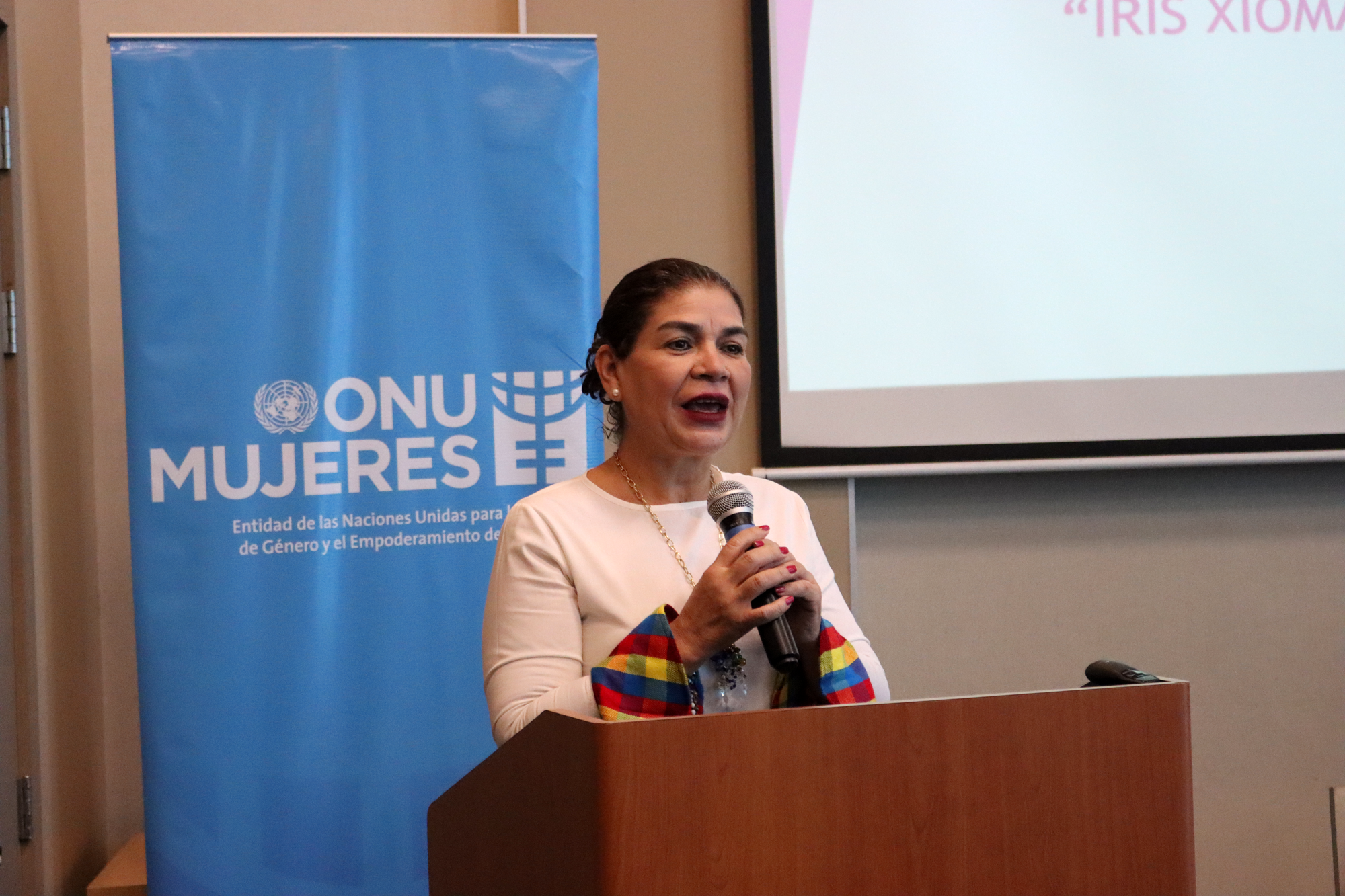Photo: UN Women Honduras
Likewise, the obligation has been established for political parties to report and allocate 15% of their financial resources to develop actions to promote women's leadership, and the structure of the Gender Unit of the National Electoral Council was created.
As a result of this project, there was an increase of 6% of women elected to the National Congress and 45% in municipal corporations (supported by strategic communication actions including public events, positioning in the media, the campaign "politics does not have gender, it has ideas," a political marketing strategy for 60 local women candidates).
Another significant achievement of the project is the qualification of data on compliance with parity and alternation in the 2021 elections, used as official information for high-level reports (EU and OAS) and documentation/analysis on violence against women politicians.
The project has achieved results that were not previously contemplated, such as the participation of more women in politics, hand in hand with the strengthening of organizations that support the visibility and protection of women, as well as the positioning of women politicians on the front page, increasing the interest of national and international organizations in technically and/or financially accompanying more efforts to continue strengthening the political participation of women.
